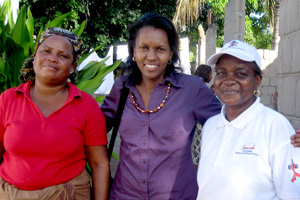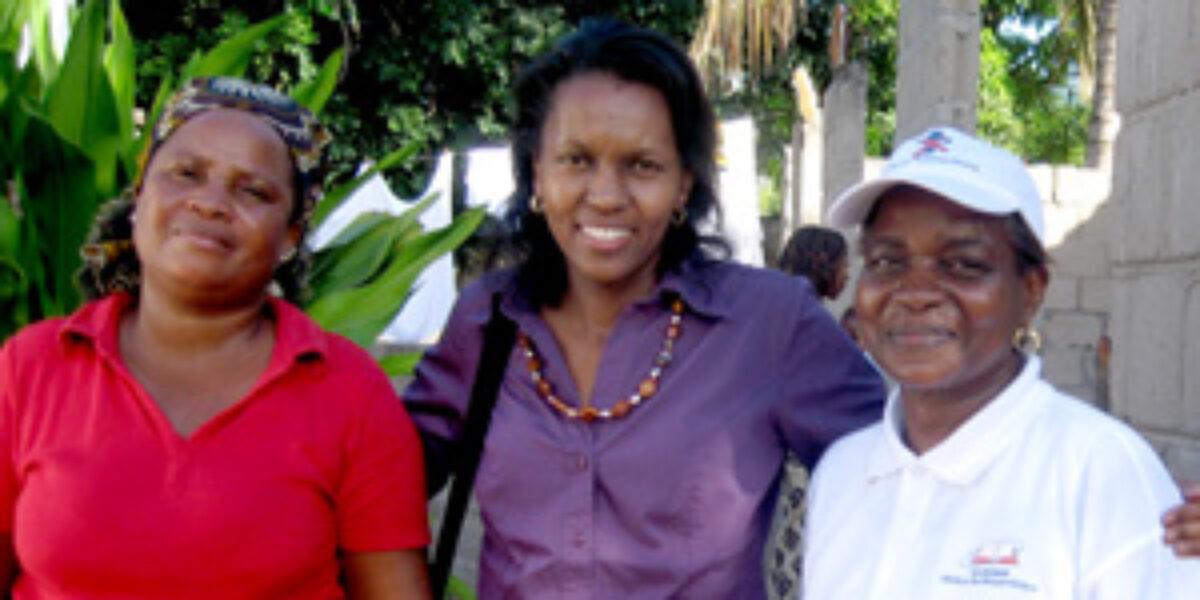
She greets visitors with a wide smile, dancing and joy. Abundant joy.
But Rosalina Matola, founder of the Evangelical Church of the Divine Pastorate of Mozambique, also understands pain.
“My own father died when I was 3 years old,” Rosalina explains, “so I know what it is to be in need.” Yet grief and struggle don't define Rosalina. Joy from the Word of God does.
And in Infulene, the district in southern Mozambique, she spreads that joy to everyone she meets: the disabled victims of Mozambique's 16-year civil war and others maimed by the trail of land mines the war left behind, the orphans of war and disease, families displaced by natural disasters, and women abandoned by their husbands.
Rosalina cares for them all.
And now, equipped with training from the Good Samaritan program, she embraces those with HIV/AIDS, a disease that affects nearly 18 percent of Mozambique's population.
Jesus' Love and Compassion
The Good Samaritan program is an HIV/AIDS outreach implemented by the Bible Society of Mozambique (BSMz) with funding from the American Bible Society (ABS). It trains Christian leaders like Rosalina to respond to the problem of HIV/AIDS with Jesus' love and compassion. From July 2009 to May, the project prepared 118 pastors and teachers to minister through Scripture to HIV/AIDS patients and their families.
Through onsite training sessions, informational booklets and the story of the Good Samaritan in Luke 10:25-37, Mozambican pastors and teachers learned to provide for the basic medical, emotional and spiritual needs of infected individuals and their families. The leaders then brought the training back to their village churches. It was sorely needed.
Each day, HIV-positive Mozambicans struggle to overcome the stigma associated with their disease. Often, they are abandoned by their families and lack access to proper nutrition, medical treatment and resources to provide for their children. Many give up, says Rosalina, because they don't have proper treatment. Others despair because they feel despised. And still others are lonely since they're isolated from others.
How does Rosalina respond? She visits and gives them love and acceptance.
She also has a place for them to come and stay. This six-bed haven is staffed with volunteers who provide care and nutrition for those who wish to stay.
Education is Crucial
The need for HIV/AIDS education and care is particularly important in southeastern Africa, a region that includes Mozambique, Swaziland, Zambia and Zimbabwe. Other regions in Africa have curbed the rate of HIV/AIDS infections, but war, flooding and weak infrastructures have made the disease more difficult to control in this part of Africa.
The first case of HIV in Mozambique appeared in 1986. Now, according to UNICEF, approximately 1.5 million Mozambicans live with HIV/AIDS, with an additional 500 new infections per day. In comparison, Uganda and Ethiopia have prevalence rates that are less than half this amount.
Rosalina watches firsthand as the HIV/AIDS epidemic ravages families, children, men and women in her community. “We have orphans to take care of. Old people too,” Rosalina explains. “Poverty is very high. And we are taking care of all them.
“With the problem of HIV/AIDS, we cannot manage to win,” Rosalina says. “Only God can help us win.”
This reality is borne out repeatedly as more people experience the healing power of God's love.
Rosalina tells the story of a young couple infected by HIV/AIDS in her village. When the husband discovered that his wife was HIV-positive, he prepared to expel her from their house. However, the young woman persuaded him to see Rosalina for counseling.
Through the biblical counseling strategies Rosalina learned from the Good Samaritan Program, the couple reconciled and the marriage was restored. Now the couple counsels a group of 10 other HIV-positive individuals.
When Rosalina looks at her congregation on Sunday mornings, she sees the fruit of the Good Samaritan program: People live positively with HIV/AIDS and nurture each other to health, orphaned children receive love and attention, and marriages are healed. “We thank God for the courage of breaking the silence of AIDS,” Rosalina exclaims.
In Mozambique, the Good Samaritan program is not only breaking the silence of AIDS, it is also replacing the stigma of the disease with the love for one's neighbor—a love that reflects Jesus' words: “Whenever you did this for one of the least important of these followers of mine, you did it for me!” (Matthew 25.40, GNT)





